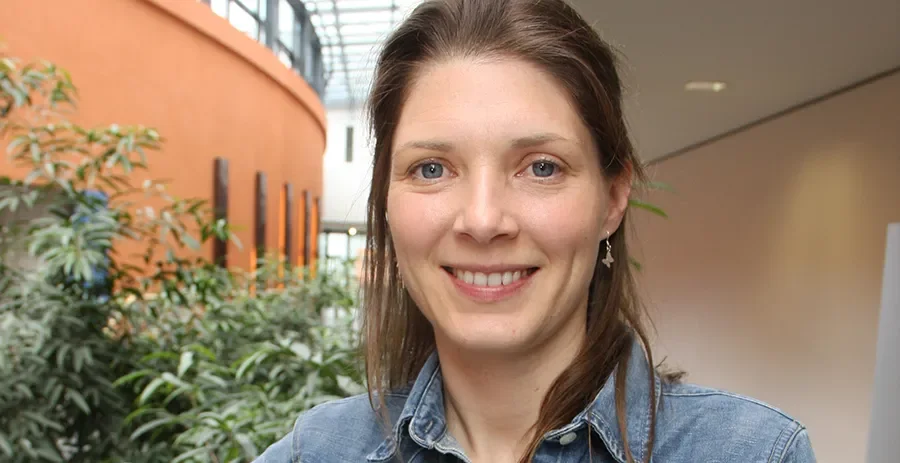

Spotlight on research: Building a more dementia-friendly society
In this week's Spotlight on Research interview series, Dr Kate Irving of DCU School of Nursing and Human Sciences speaks about spearheading initiatives to encourage better brain health and to enable people with dementia to live well in society.
When she was was working as a nurse in England in the 1990s, she had a rude awakening. One night, as she was working on a ward, an elderly patient hit her over the head.
“It was a bottle of Robinson’s orange, the heavy, glass kind, and I needed stiches for the wound,” she recalls. “Initially I was quite angry, but when I got back to the ward it dawned on me that this patient, who had dementia, was let down by the entire system, and he was in a ward that was not designed for him.
In fact the whole setup was anti-dementia. I didn’t want to be part of the care system that led to that, so I decided to go and do something about it.”
That insight led Dr Irving to pursue an academic career, during which she has worked on projects to promote brain health and help delay dementia and more generally to build a more dementia-friendly society.
Lifestyle in mind
Dr Irving, a Senior Lecturer at DCU’s School of Nursing and Human Science led the FP-7-funded INMINDD which has looked at how people can take steps to help delay the onset of dementia through lifestyle choices in middle age.
“There are no guarantees, but research suggests that being physically and socially active and looking after heart health in middle age is linked to a later onset of dementia,” explains Dr Irving.
“INMINDD developed an online tool for people to assess what they needed to change and support them in doing that. The project showed us there is low awareness about the links between lifestyle and dementia, and that online education works moderately well for a subset of people. It is an incremental step, and the findings really drove home to me that we need a lot of different approaches to raise awareness and action about dementia.”
Dementia-friendly society
A major goal of Dr Irving’s work is to build our skills as a society to support people who have dementia.
“Our Dementia Elevator programme is about enabling people to live well with dementia. A big part of this is providing training and education and empowerment programs for those who encounter people with dementia in their work,” she explains.
“We have one hour courses for people working in retail, banking and transport, longer 12-week courses for healthcare professionals and, through the Erasmus-funded POSADEM project, we are developing a European Masters-level course for journalists, architects, town planners…it is for anyone who can change everyday experiences for people with dementia.”
Changing mindsets
The training programmes have already changed behaviours, and Dr Irving was particularly happy to hear that one community nurse had built up a ‘friendship circle’ for a lady with dementia, encouraging her friends to bring her to social events.
“It meant that friends re-engaged with the person with dementia,” says Dr Irving. “Those small changes can have a big ripple effect.” Organisations are now picking up on the DCU-co-ordinated dementia-friendly training and incorporating it into staff development, notes Dr Irving.
“It really is about taking what we are learning about people with dementia and their requirements and helping individuals to understand how maybe that person needs a little more time to carry out their transaction, or how to communicate in a way that encourages a person with dementia to do something themselves, rather than ‘overhelping’ them.”
Dr Irving has changed her behaviours too, because her research team now includes several people with dementia. “It is really important that people with dementia are involved, because research about dementia can only be enriched by the voices of people with the condition,” she says. “It has been a steep learning curve for me, and I have needed to think about phrasing and make sure I am asking for things in a way that is helpful and understandable.”
Small steps, big changes
Tackling the global issue of dementia is a monumental task, according to Dr Irving, but she sees the benefit of making community-based changes.
“The whole of dementia is too hard to take on at once,” she says. “But you can make small changes, encouraging people to think about their own brain health and how they can be more mindful when dealing with a person with dementia, and these small changes can help to widen awareness and make our society more inclusive for people with dementia.”
